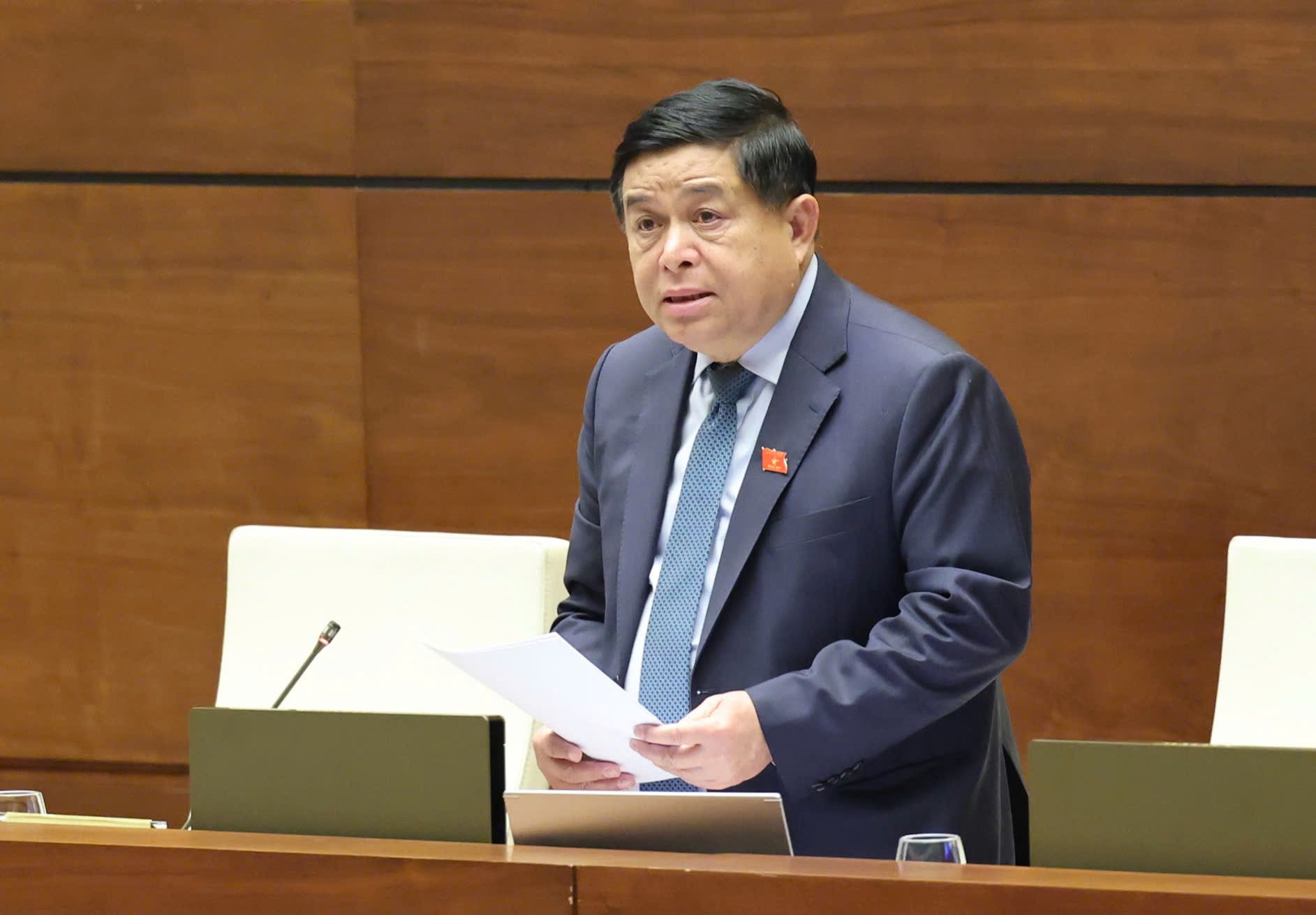
Deputy Prime Minister Nguyen Chi Dung delivers an explanation, clarifying several issues raised by National Assembly delegates regarding the draft Digital Technology Industry Law. Photo: PV
Speaking at the 9th session of the 15th National Assembly on May 9, Deputy Prime Minister Nguyen Chi Dung emphasized that the draft Digital Technology Industry Law is a key initiative to complete the legal infrastructure for a nascent industry. It also serves to institutionalize the Party’s directives on innovation and enterprise development, while laying the groundwork for Vietnam’s deeper integration into global technological trends.
Building digital technology into a new economic pillar
Deputy Prime Minister Nguyen Chi Dung stated that the draft law is expected to act as a powerful catalyst for the emergence of a new industry with high economic value and as a driving force behind national digital transformation.
The draft law outlines four main goals: developing the digital technology industry into a key economic sector contributing significantly to GDP; fostering a domestic digital tech business ecosystem capable of shifting from outsourcing to mastering core technologies, integration, production, and innovation; investing in modern and synchronized infrastructure to propel digital transformation across society; and attracting and cultivating high-quality digital technology talent, both domestically and abroad.
Importantly, the draft institutionalizes key policies highlighted in the Politburo’s Resolution 57 and Resolution 68. These include incentives for tech enterprises, development of shared digital infrastructure, encouragement of innovative startups, talent training, and controlled technology testing.
An open legal corridor for strategic technologies
The law proposes a comprehensive set of incentives covering the entire development chain of the industry. These include financial support, infrastructure access, corporate and import-export tax breaks, land use benefits, streamlined customs procedures, and investment in education and training. Notable policies also involve exempting work permits, offering five-year visas, scholarships, and personal income tax breaks for specialists. Research investment is also incentivized, with related expenses deductible for tax purposes.
The government will invest in essential infrastructure, while also encouraging private investment in tech infrastructure and the establishment of dedicated technology zones. It will also support market expansion for digital products, especially with incentives for state-funded procurement.
Among the prioritized sectors, the semiconductor industry is identified as a strategic focus. It will receive distinct support policies aimed at enhancing competitiveness and leveraging shifts in global value chains. This illustrates Vietnam’s proactive stance in embracing the Fourth Industrial Revolution.
The draft Digital Technology Industry Law is expected to catalyze the formation of a new high-value industry and become a driving force for national digital transformation.
Proactive stance on AI and digital assets
One notable innovation in the draft law is the formal inclusion of artificial intelligence (AI) as a regulated area. AI is regarded as a breakthrough tool to enhance productivity and national competitiveness. Yet, it remains a field with significant risks and a lack of comprehensive legal models globally. As such, the draft adopts a principle-based, flexible framework, with the government tasked with issuing detailed regulations aligned with practical realities.
At the same time, the law introduces foundational principles for managing digital assets - an emerging and complex area. The initial provisions address definitions, classifications, and regulatory guidelines, allowing for a flexible approach. The government will define specifics according to each specialized sector. This lays an important foundation for effective regulation and the growth of the domestic digital asset market.
Controlled testing - an open mechanism for innovation
The draft law explicitly establishes a controlled sandbox mechanism for testing digital technology products and services. This framework outlines principles of implementation, selection criteria, responsibilities, user rights, and liability exemptions for objective risks encountered during testing.
To ensure legal consistency, the government is directing the Ministry of Science and Technology to explore the feasibility of including sandbox mechanisms within the Law on Science, Technology and Innovation, allowing detailed regulations tailored to each sector.
Deputy Prime Minister Nguyen Chi Dung emphasized that, based on feedback from National Assembly delegates, the government will continue to refine the draft Digital Technology Industry Law to ensure thoroughness and readiness for approval during the 9th session.
This law is not merely a sectoral regulation; it serves as an institutional lever for national digital transformation. Now is a golden opportunity for Vietnam to proactively build a robust legal foundation, paving the way for domestic tech enterprises to thrive, integrate deeply into the global economy, and elevate the country’s position in the digital age.
Thai Khang